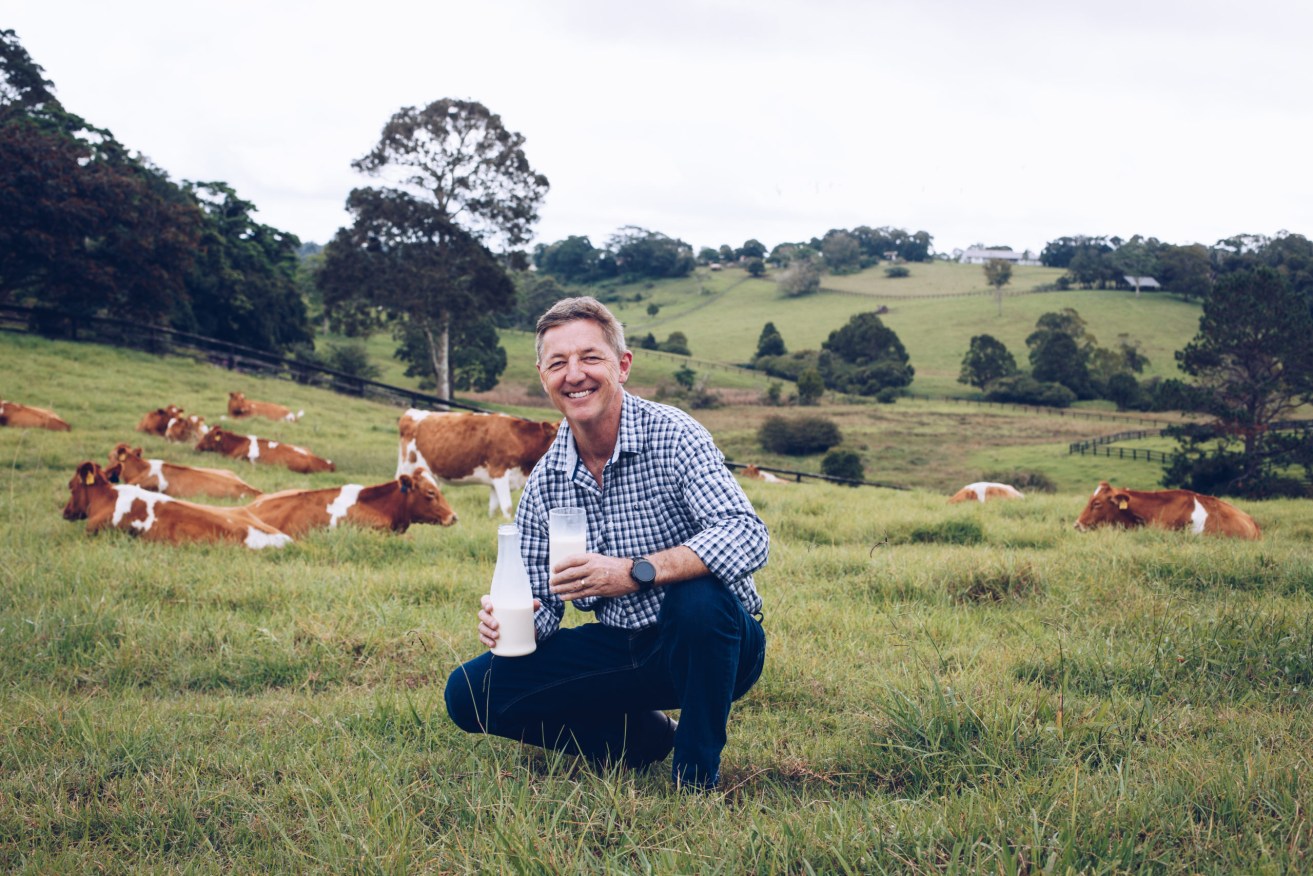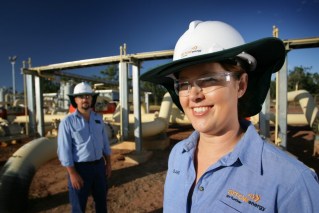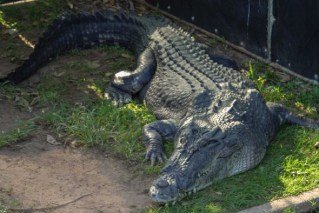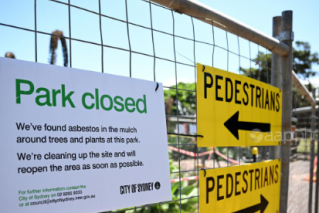High-tech tools put ‘wow’ back into farming
Queensland is riding an innovation boom aimed at sustaining farm production in a climate-constrained, post-pandemic future.


Naturo founder and CEO Jeff Hastings is among Queensland's agtech revolution opening up new opportunities with their dairy products.
Agtech is the buzz word in farming that just won’t go away – and with good reason.
As the world prepares for an uncertain future of climate upheaval and coronavirus-induced market disruption, some of our best minds are grappling with the challenge of feeding and clothing more people on a planet of dwindling natural resources.
Within that challenge of achieving sustained and profitable agricultural production, comes opportunity, especially as governments continue to assure jittery consumers prone to fits of panic-buying that Australian food supply chains are safe and secure.
Here in Queensland, the Palaszczuk Government has not only confirmed agriculture as an essential service during the pandemic but a key generator of revenue and employment that will assist the economy to emerge from the Coronavirus downturn.
On face value, the government is matching the rhetoric with dollars, announcing last week alone:
- $5 million in grants for cluster fencing in western Queensland to control wild dogs and boost sheep and wool production.
- $5.5 million to develop integrated supply chains that improve traceability, biosecurity and food safety.
- $5 million to support e-commerce and virtual trade facilitation in key markets and assist coordination of demand for additional regular air freighter services.
- $2 million to build capability and explore potential diversification opportunities in agricultural businesses, including tourism.
Via the Innovation and State Development portfolio under Minister Kate Jones, the government has also allocated $3.3 million to the development of an agtech hub in Toowoomba.
Speaking to InQueensland, Jones described the Government’s strategy as “playing to our strengths”.
“That’s why we’re focusing heavily on industries that have traditionally propped up Queensland’s economy,” she said.
“Agtech is crucial to our future. We want to support our farmers to scale up and export overseas, creating more jobs locally. But we also want to be able to commercialise our technology.
“Through our Advance Queensland strategy to diversify our economy, we’ve created more than 20,000 jobs and leveraged more than $848 million from the private sector.
“Much of this success has come from the millions of dollars we’ve invested in agtech throughout the state.”
While there’s a familiarity with traditional farming machinery such as ploughs and tractors, pretty soon we’ll be coming to know the work of new technology such as drones and smart bots.
InQueensland has compiled several initiatives either in-market or in-development forged from local ingenuity and engineering assisted by the Advance Queensland program.
Here’s a taste of what’s in the pipeline.
Smart cattle ear tags
The Ceres Tag is a GPS-enabled, smart ear tag for livestock developed by James Cook University and industry partners that allows farmers to track their cattle remotely and in real time.
The automated traceability will help farmers detect stock theft, improve mustering, pasture use and animal welfare. The smart tag is designed to potentially last the lifetime of the animal and requires no maintenance or battery replacement.
The tag’s identification system makes it an ideal starting point for block chain traceability of livestock products.
Trials are continuing in north Queensland and northern New South Wales to ensure the tags work well in tough conditions. Ceres Tag is currently manufacturing another 3000 ear tags for trials in other countries before the product is released to market in 2021.
Swarmbots make their move
On their grain farm near Emerald, founders Jocie and Andrew Bate have been creating large robots with names like Juliet, Lena, Mike and Kelo that work 24/7 carrying technology such as weed sprayers and mowers around fields.
Their autonomous farm vehicles (called SwarmBots) are the next big thing for crop management and protection. The SwarmBots also aren’t as heavy as most tractors and therefore reduce soil compaction which helps solve another big problem for farmers.
The company – Advanced Agricultural Systems Pty Ltd, trading as SwarmFarm or Swarm Farm Robotics – is listed among five of the top ag robot companies worldwide.
SwarmFarm received an Ignite Ideas grant (close to $250,000) to deploy their agricultural robots on orchards and grain, cotton and turf farms in Caboolture, Dalby and Bundaberg.
Milking extended shelf life
Sunshine Coast company Naturo has made one of the biggest breakthroughs in dairy production since pasteurisation with technology that produces fresh milk with 60+ days shelf life.
Naturo’s new process kills more bugs than pasteurisation, so it is safer; it has no additives or preservatives and it retains more vitamins B2 and B12, so it is healthier than pasteurisation.
This means 100 per cent natural non-pasteurised Australian milk can now be shipped around the globe for drinking and making dairy products like cheese.
LESS is more
Gone are the days of farmers giving their crops the same amount of water every week or according to a calendar system.
Bundaberg-based LESS Industries offers a smart monitoring system that stops overwatering which can be bad for crops and drive up costs.
The LESS system uses the Internet of Things to tell farmers when to water their crops. The system saves water and is better for production.
A network of strategically placed sensors collects data about soil and weather conditions and plant health and sends the information to a cloud application for analysis and decision-making. The cloud application is accessible from any computer or smart phone and allows for automated actions.
Fantastic plastic
Solar Shrink is a unique product allowing farmers to use up to 30 per cent less plastic when mulching their fields. It’s a win for farmers and the environment.
Solar Shrink has patented properties that enable it to shrink tight to the growing bed when heated by the sun, preventing the sheet from flapping in the wind and helping to retain heat and moisture in the soil. The film controls weeds that use up nutrients the crop needs.
Sumner Park agricultural company, Hydrox Technologies Pty Ltd received a $100,000 Ignite Ideas grant to perfect the equipment they designed and built and to pursue global licensing for production of Solar Shrink film.
Hydrox’s plastic mulch film was named as one of the “World’s Top 10 New Agricultural Products for 2018” at the World Ag Expo in Tulare, California.
Zest for life
Family-run farming business Suncoast Limes has been farming limes for more than 20 years.
Husband and wife duo Linda and Daniel Tabone developed an automated machine that completely removes the zest from the whole fruit prior to juicing, a job previously done by hand, to reduce waste and costs.
About 40 per cent of Australian citrus is sent for juicing, which delivers a relatively poor return to the grower and is usually seen as an alternative to simply dumping the fruit when returns are low.
This new process produces extra-high-value product from the skins that would normally go to waste. This increases the value of the fruit and provides higher returns to the grower.
Ayr-based company DFSU Ltd has created Phytocel – a way of extracting dietary fibre from sugarcane – and expanding into North America.
Farming by numbers
DataFarming is a company commercialising an online tool to monitor crop or pasture with imagery.
The tool will identify on-ground issues and pasture quality and deliver targeted solutions so that farmers know how much water their crops precisely need.
The tool can also identify long term productivity zones and instantly create a file that can be uploaded to a tractor to apply variable rates of fertilisers to crops.
Hold the phone
In the Mackay-Whitsunday region, Farmacist is developing a smartphone app that allows growers to record irrigation events and infrastructure on their properties – matching this with crop information to maximise water efficiency and crop yield.












